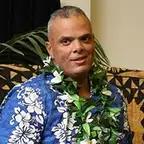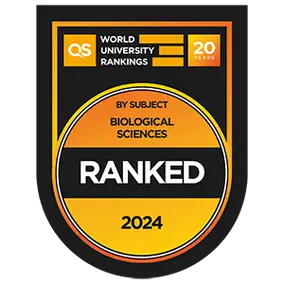Where you can study
International students
International students are not New Zealand citizens or residents.
Specialise in Integrated Human Health for your Bachelor of Health Science at Massey
Create healthy workplaces
Massey’s Bachelor of Health Science (Integrated Human Health) will give you a broad and applied knowledge of the impact of biological and environmental factors on health.
Make a difference to the nation’s health
Health is complex. If we want to improve health outcomes for ourselves and our communities it's important to have an appreciation of the many different aspects of health. This major takes an integrated approach to understand the latest science of good health. You’ll explore a range of factors that determine human health including sleep, exercise, nutrition, genetics and the environment.
In the Bachelor of Health Science (Integrated Human Health) you'll gain vital knowledge and skills in relevant human bioscience areas. This will help you understand the impact of these crucial factors on body function and their role in achieving and maintaining good health. You’ll also learn about intervention and prevention strategies and their role in improving health outcomes.
Study your way
You can choose whether to study on campus or by distance to fit with your other commitments.
Further study
You may wish to consider further study once you have completed your degree such as a Postgraduate Diploma in Health Science or Master of Health Science.
A Bachelor of Health Science in Integrated Human Health is a good fit if you:
- want a career in a specialist health-related fields
- have a passion for improving health outcomes and addressing inequities
- want to understand how the human body functions.
Planning information
If you study full-time, you’ll take eight 15-credit courses each year.
Make sure you include courses that are prerequisites for the next level of courses you wish to study.
Make sure you choose 151131 Introduction to Food and Nutrition and 147102 Whakapiri: Engagement in Mental Health and Addiction Work in your first year because they are pre-requisites for two of your 200-level compulsory major courses.
Full-time study plan
This includes compulsory core courses, major courses, prerequisite courses and recommended electives
Year One
Semester One
- 231106 Introduction to Public Health
- 250100 Health Communication
- 214101 Human Bioscience: Normal Body Function
- 147102 Whakapiri: Engagement in Mental Health and Addiction Work (prerequisite for Year Two course)
Semester Two
- 214102 Applied Sciences for Health Professionals
- 231107 Social Determinants of Health (recommended to be taken in Semester Two only)
- 150112 Hauora tangata: Foundations of Māori Health
- 151131 Introduction to Food and Nutrition (prerequisite for Year Two course)
Year Two
Semester One
- 250205 Principles and Practice of Human Epidemiology
- 214201 Human Bioscience: Impaired Body Function
- 150202 Mauri ora: Māori Wellbeing and Vitality
- 234223 Exercise Physiology
Semester Two
- 214212 Research Methods in the Health Sciences
- 147202 Mental Health Promotion
- 231200 Theories and Models of Health Promotion
- 252201 Sleep, Circadian Rhythms, and Shift Work
Year Three
Semester One
- 250331 Health of Communities
- 231307 Intervention Design
- 252301 Sleep, Health and Performance
- Elective
Semester Two
- 250303 Systems Thinking and Design for Health
- 231308 Health Promotion Advocacy
- 214331 Food Choice and Nutrition Promotion
- Elective
In the final semester of your study, you have the option to gain practical experience by taking the elective course 250320 Work Integrated Learning in Health Sciences.
Official regulations
To understand what you need to study and must complete to graduate read the official rules and regulations for this qualification.
You should read these together with all other relevant Statutes and Regulations of the University including the General Regulations for Undergraduate Degrees, Undergraduate Diplomas, Undergraduate Certificates, Graduate Diplomas and Graduate Certificates.
Returning students
For returning students, there may be changes to the majors and minors available and the courses you need to take. Go to the section called ‘Transitional Provisions’ in the Regulations to find out more.
In some cases the qualification or specialisation you enrolled in may no longer be taking new enrolments, so may not appear on these web pages. To find information on the regulations for these qualifications go to the Massey University Calendar.
Please contact us through the Get advice button on this page if you have any questions.
Courses you can enrol in
Course planning key
- Prerequisites
- Courses that need to be completed before moving onto a course at the next level. For example, a lot of 200-level courses have 100-level prerequisite courses.
- Corequisites
- Courses that must be completed at the same time as another course are known as corequisite courses.
- Restrictions
- Some courses are restricted against each other because their content is similar. This means you can only choose one of the offered courses to study and credit to your qualification.
Core courses for the Bachelor of Health Science
As well as the specialisation courses listed below, this qualification has core courses that you will need to complete.
Bachelor of Health Science core courses
Integrated Human Health courses
Compulsory courses
Course code: 147202 Mental Health Promotion 15 credits
The course covers the rationale and principles of promoting mental health in Aotearoa New Zealand and globally. Attention is given to key concepts and frameworks underpinning this area of practice.
View full course detailsCourse code: 214331 Food Choice and Dietary Patterns 15 credits
Examination of factors affecting food choice and investigation of dietary strategies to promote improved diet quality in individuals, communities, and populations with specific needs.
View full course detailsCourse code: 231200 Theories and Models of Health Promotion 15 credits
An opportunity for students to explore the theoretical foundation of community and population-based health promotion and mental health promotion. The course emphasises the application of models and theories to public health programmes and policies.
View full course detailsCourse code: 231307 Intervention Design 15 credits
A practical exploration of approaches and tools for designing interventions in public health and health promotion.
View full course detailsCourse code: 231308 Health Promotion Advocacy 15 credits
An analysis of approaches to advocacy in health promotion with a particular focus on practical facilitation, engagement and reflection.
View full course detailsCourse code: 234223 Exercise Physiology 15 credits
A study of the function of human biological systems as they relate to sport and exercise. Acute responses and the chronic adaptations to sport and exercise, specifically in relation to the core topics of human energetics, muscular, cardiovascular and respiratory systems. A strong laboratory focus will reinforce the theory and develop laboratory skills relevant to exercise physiology.
View full course detailsCourse code: 252201 Sleep, Circadian Rhythms, and Shift Work 15 credits
This course provides an introduction to sleep and circadian science, emphasising their vital importance for understanding human health, recovery, and performance. It explores the challenges to sleep and circadian physiology posed by the 24/7 society, and examines the sleep health of New Zealanders.
View full course detailsCourse code: 252301 Sleep, Health and Performance 15 credits
This course extends fundamental concepts in sleep and circadian science. It examines the causes and consequences of sleep loss, as well as misalignment of the circadian body clock with the day/night cycle. The course has a particular emphasis on the impact of sleep duration, quality and timing, and circadian dysregulation, on health and performance.
View full course detailsEntry requirements
Admission to Massey
All students must meet university entrance requirements to be admitted to the University.
Specific requirements
There are no specific entry requirements for this qualification, outside of university admission regulations.
English language requirements
To study this qualification you must meet Massey University's English language standards.
English language skills
If you need help with your English language skills before you start university, see our English for Academic Purposes (EAP) courses.
Can't meet the entry requirements?
If you need to do a course before you start your qualification, there may be options for you in Summer School.
Fees and scholarships
Fees, student loans and free fees scheme
Your tuition fees may be different depending on the courses you choose. Your exact fees will show once you have chosen your courses.
There will also be some compulsory non-tuition fees and for some courses, there may also be charges for things such as study resources, software, trips and contact workshops.
- Get an estimate of the tuition fees for your qualification
- View a list of non-tuition fees that may be payable
Already know which courses you're going to choose?
You can view fees for the courses that make up your qualification on the course details pages.
Student loans (StudyLink) and Fees Free scheme
You may be eligible for a student loan to help towards paying your fees.
The New Zealand Government offers fees-free tertiary study for eligible domestic students. Find out more about the scheme and your eligibility on the Fees Free website. To use the site's eligibility checking tool, you will need your National Student Number.
Current and returning Massey students can find their National Student Number in the student portal.
- Student loans (StudyLink)
- Fees Free
- Student portal
Scholarship and award opportunities
Search our scholarships and awardsFees disclaimer
This information is for estimation purposes only. Actual fees payable will be finalised on confirmation of enrolment. Unless otherwise stated, all fees shown are quoted in New Zealand dollars and include Goods and Services Tax, if any. Before relying on any information on these pages you should also read the University's Disclaimer Notice.
Careers and job opportunities
The Bachelor of Health Science (Integrated Human Health) will equip you to work in many different fields. You’ll be working to encourage people to improve their health. Employment opportunities include working in:
- local health authorities
- local and national governments
- schools and universities
- corporate companies
- charities and funding bodies
- research institutes
- health and fitness centres.
What our students say
“I recommend studying at Massey University because it allowed me to learn about everything that contributes to health and wellbeing, but also the real world application of this knowledge that allows you to work in the health field.”

“One of the services that helped me significantly as a distance student was Massey's online learning platform. The Stream site provided me with the opportunity to connect peers and teaching staff, watch online lectures, lessons or presentations, submit assessments and much much more.”

“I chose Massey because I’d heard how the university supports its student athletes both academically and with their sporting commitments. Studying with Massey was the best option for me because I could work my study into my schedule and complete it anywhere, anytime.”

Accreditations and rankings

QS Ranking - Biological Sciences
Massey University is ranked by QS (Quacquarelli Symonds) as one of the top 450 universities in the world for biological sciences.
Related study options
Environmental Health – Bachelor of Health Science
Protect people and communities from threats to their health from built and natural environments, with the Bachelor of Health Science (Environmental Health).
Health Promotion – Bachelor of Health Science
Tackle key health challenges and improve individual, community and population well-being with Massey's Bachelor of Health Science (Health Promotion).
Mental Health and Addiction – Bachelor of Health Science
Massey’s Bachelor of Health Science (Mental Health and Addiction) will help you start or advance a career in the mental health and addictions workforce.
Without Specialisation – Postgraduate Diploma in Health Science
Massey’s Postgraduate Diploma in Health Science will give you the skills you need to succeed in the growing health industry.
Useful planning information

Key information for students
Compare qualifications and academic information across different New Zealand institutions. Learn more on careers.govt.nz
